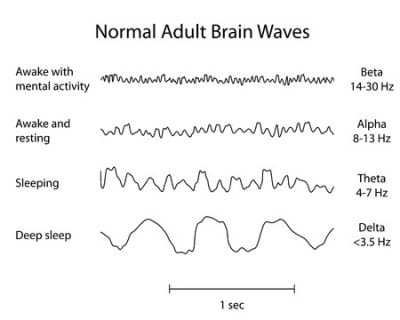How Hypnosis Works
There is a lot of misinformation out there about Hypnosis. This article is going to tell you exactly what Hypnosis is – and how it works.
Let’s dispel some of those myths and misconceptions in the first instance. No, you won’t be turned into a clucking chicken and there is no pocket watch. Hypnosis is not sleep, in fact, it is a heightened state of focused awareness, with a deep feeling of relaxation. Many people think that Hypnosis is about putting someone ‘under’, where they are told to stop doing something and they wake up miraculously ‘fixed’. Hypnosis doesn’t work like that.
How does Hypnosis work?
Hypnosis is a powerful tool that enables us to change how we choose to respond to situations. 95% of our behaviour and decisions are controlled by the subconscious mind, according to a study by Dr. Julia Mossbridge and associates. With the client in a relaxed, comfortable state, the Hypnotherapist works with the client’s thought patterns and behaviours that lie in the subconscious mind – this is everything beyond the capabilities of the conscious mind. The suggestions used by a trained Hypnotherapist in Hypnosis can include storytelling, guided imagery, visualisation and powerful metaphors, ‘re-educating’ the subconscious mind in a positive way, helping the client to be more in control of their thoughts and feelings.
Let’s use this example to help illustrate how Hypnosis works.
Imagine you go arrive at a networking event. There are a lot of people at that event, and the room is filled with people you don’t know. You notice that you are beginning to feel rather nervous, your palms are sweaty and your heart is racing a little more. Negative thoughts spiral out of control. By now, you want to leave – you’re feeling pretty rotten. But you know that you have to stay there for work in order to make new connections that might lead to new business, otherwise your boss won’t be best pleased. You stay, but you feel terrible.
How did that happen, and why does it keep on happening time and time again in social situations? At some point in your life, your brain matched the feeling of being nervous to a social situation. The same happened again and again. Emotion makes the pattern stick in the subconscious mind, and repetition reinforces it. You’ve instructed your subconscious mind that this is how you need to respond to similar situations in the future. So, every time you find yourself in a similar situation, your mind and body make you feel the same way, because in the past, this is what helped you to survive the situation you were in. The good news is, using Hypnosis, we can send a clear message to the subconscious mind and instruct it to calm down, enabling us to experience the situation in a more relaxed, positive way and have a better quality of life.
Using data from an EEG (Electroencephalograph) we can see that during Hypnosis, both alpha and theta waves increase. In this relaxed state we start to daydream, and we can build new networks of thought. The brain becomes more receptive to beneficial suggestions, a change in perspective, and can instil positive change. By creating a relaxed state we are able to see solutions to problems more easily and are able to change the way we think in order to feel better, more confident and more in control. During reorientation, the brainwave patterns will gradually increase towards the Beta waves bringing the client back to full state of awareness. EEG monitors, along with MRI scanners, are able to provide scientific proof of how our brain changes during Hypnosis.

So how can Hypnosis help?
Hypnosis teaches us to send a signal to the brain and body that it is safe to relax in that situation. We are taught to function from a place where feelings and thoughts are less intense; our focus and engagement improves. Hypnosis helps to train the brain to focus on what we do want, not on what we don’t want, giving us control over our thoughts and the way we choose to respond and act in certain situations. Also, thanks to some wonderful guided visualisation techniques that have been developed and improved over the years, we can use our imagination to visualise the ‘problem’ situation in a positive way, training the brain to change perspective, so the next time we are in that situation, it feels a whole lot better.
Where’s the evidence?
There is a large body of evidence to support the use of Hypnosis in the treatment of anxiety, stress and enhancement of quality of life. Following an extensive review of the existing literature on Hypnotherapy, the BMA (British Medical Association) concluded that Hypnotherapy was not only effective, but may be ‘treatment of choice’ in dealing with anxiety (‘psychoneurosis’) and stress-related (‘psychosomatic’) disorders. A recent ‘Clinical Review’ of Hypnosis and relaxation therapies published in the BMJ (British Medical Journal) looked at the existing research on Hypnosis and concluded, ‘There is good evidence from randomised controlled trials that both hypnosis and relaxation techniques can reduce anxiety […]’, the same report also concluded that hypnosis was proven to be effective in treating panic attacks and phobia. (Vickers & Zollman, ‘Hypnosis and relaxation therapies,’ BMJ 1999;319: 1346-1349).
Hypnotherapy can also be used to help improve IBS as well as medical conditions that are made worse by anxiety and stress such as Chronic Obstructive Pulmonary Disease (COPD). Annette Sloly is a Registered Clinical Hypnotherapist in Clifton Bristol. Over the years, he has worked with everyone from professionals suffering from stress to world-class artists looking to improve their performance. For more information, get in touch to find out how Hypnotherapy can help you today.






You must be logged in to post a comment.